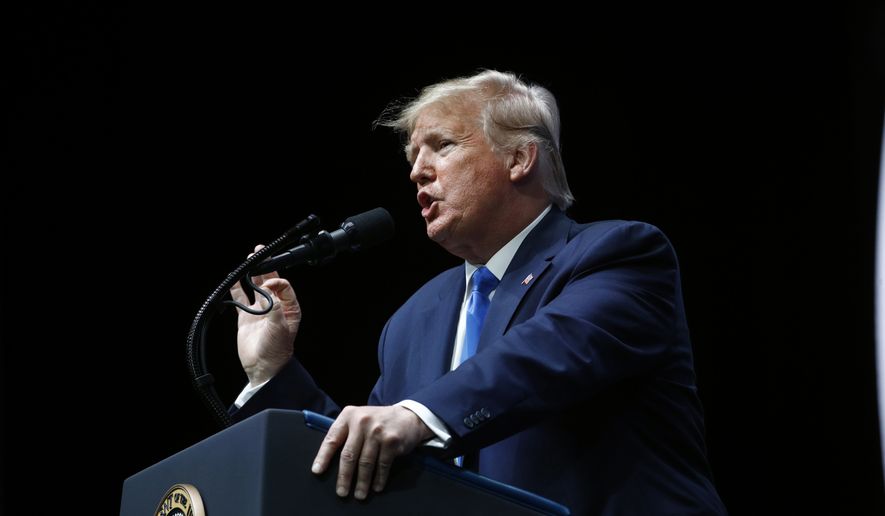President Trump on Monday endorsed a bipartisan compromise to tackle “surprise” medical bills that slam patients who get treated by doctors outside of their insurance networks.
The White House said Mr. Trump wants Congress to send him legislation before the end of the year.
“This compromise reflects the input of doctors and hospitals and is the result of months of delicate work to reach a deal among congressional members and the White House that protects patients,” White House Press Secretary Stephanie Grisham said. “Americans should not be surprised with huge medical bills when they are most vulnerable.”
Surprise medical bills hit people who are rushed to an out-of-network hospital in the throes of an emergency and unwittingly receive care from an uncovered doctor, leading to unexpected bills that might not be covered by insurance.
The compromise, announced Sunday, revived efforts to tackle the problem after stutter-steps and industry pushback raised fears that Capitol Hill would throw a brick on what seemed like legislative lay-up.
“I do not think it is possible to write a bill that has broader agreement than this among Senate and House Democrats and Republicans on Americans’ number one financial concern: what they pay out of their own pockets for health care,” said Senate Health Committee Chairman Lamar Alexander, who worked on the bill with House Energy and Commerce Chairman Frank Pallone and Ranking Member Greg Walden. “Congress should pass the bill promptly and give the American people a very good Christmas present.”
Notably, the bill includes an arbitration system to resolve billing disputes. Lawmakers are still filling in the details, though the compromise calls for paying bills under $750 at a default, or benchmark, price. Bills above that amount could be brought to arbitration for an independing ruling.
A key hospital group says the final bill will be lacking if its dispute-resolution system is pegged to benchmark payments.
“An arbitrary rate gives insurers an incentive to remove hospitals from their networks and force artificially low reimbursement rates, which limits access,” said Rick Pollack, president and CEO of the American Hospital Association. “We urge Congress to take the time to get this policy right, and not rush a solution to surprise medical bills that would cause this level of disruption to the patients we serve.”
Small-government groups also objected, saying a benchmark rate would be a form of government rate-setting.
“Taxpayers should be wary of this ’solution’ because government rate-setting means that federal bureaucrats write the rules,” said Brandon Arnold, executive vice president of the National Taxpayers Union. “Lawmakers should avoid jamming this proposal onto year-end legislation, and return in 2020 with a balanced, measured approach that considers market-based alternatives to the surprise billing issue.”
Some lawmakers are leery, too, so the bill isn’t a sure thing.
Sponsors may try to overcome doubts by attaching the measure to must-pass legislation at the end of the year. The bill also includes add-on measures that could serve as sweeteners for holdouts.
Senate Majority Leader Mitch McConnell said he is reviewing the package, which would raise the tobacco purchasing age to 21 — a key priority for the Republican leader and Sen. Tim Kaine, Virginia Democrat.
The bill also funds community health centers for five years.
Mr. Trump has been talking about surprise billing since May, arguing previous administrations had allowed a fundamentally unfair situation to fester.
“The administration applauds the bipartisan efforts of House and Senate members since then,” Ms. Grisham said, “to move toward ending an unfair practice that causes confusion and concern for millions of Americans.”
• Tom Howell Jr. can be reached at thowell@washingtontimes.com.




Please read our comment policy before commenting.